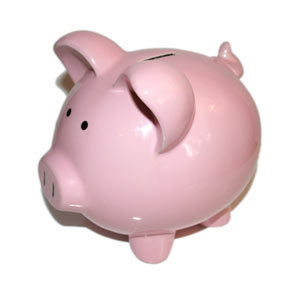The Childcare Professionals Give Advice on How To Train a Baby to Fall Asleep on Its Own
 Does your baby wake up frequently in the night? Are you sleep deprived and longing for just one good night’s sleep? Our childcare professionals at The Academy have some sleep training tips for you. You can usually start this sleep training at four to six months old.
Does your baby wake up frequently in the night? Are you sleep deprived and longing for just one good night’s sleep? Our childcare professionals at The Academy have some sleep training tips for you. You can usually start this sleep training at four to six months old.
Establishing the Right Bedtime
First, set a bed time based on the time your baby shows signs of sleepiness (yawning, eye rubbing, and fussiness). Note that babies need sufficient exercise throughout the day to ensure they will be tired enough to go to sleep at night. That’s why our award-winning curriculum at The Academy provides sufficient activities for infants in our care.
Childcare Professionals Offer Several Methods To Train a Baby to Fall Asleep
There are several methods you can use. When using any method, before you put the baby in the crib, be sure the baby is not hungry and has a clean diaper. Also make sure the bedroom is dark, quiet, and comfortable temperature-wise.
Here are a few popular methods to try.
The Cry It Out Method (CIO)
The famous “Cry It Out” method often works the fastest. Put your baby to bed, say goodnight, and don’t take the baby out of the bed until morning (or the next scheduled feeding). Leaving the baby in the crib is necessary so they learn to fall asleep without assistance.
The Check and Console Method (C&C)
This method suggests you leave the baby in the crib and then re-enter the room at 5 or 10 minute intervals. Each time, you say a few soothing words to your baby but don’t linger. Increase the time between intervals each night.
The Chair Method
With this method, you put the baby in the crib and sit in a chair next to the crib. Leave the room when the baby falls asleep. If the baby wakes up, return to sit in the chair until the baby falls asleep again. Every few nights move the chair further away from the crib until you’re eventually out of the room.
Visit Us at The Academy and Meet our Childcare Professionals
How Top-Rated Preschools in Spring Hill Encourage a Child’s Natural Gifts
It’s December, and there is a lot of thought being given to gift giving. However, in this blog, we’re going to talk about a different kind of gifts – natural gifts. As one of the top-rated preschools in Spring Hill, we know a thing or two about how to encourage a child’s natural gifts.
Whether we’re talking about natural gifts academics, sports, art, music, or something else, a gift usually needs nurturing. Here are some strategies to do that.
Let Children Discover on their Own
Parents are more likely to see a child’s natural gift if they let the child uncover what is intriguing without direction from adults. A parent’s role can be to expose a child to places and things.
Once a child displays a definite interest, the parent can begin to provide the child with more age-appropriate resources. But give your child time to see if the interest is just fleeting before going all-in. On the other hand, don’t down-play an interest because you think it might be fleeting. All experiences contribute to a child’s learning. And a natural gift that a child loses interest in now could surface again at a later age.
Harness the Power of Books and Mentors
No matter what interests your children, books that relate to that subject can fuel a child’s curiosity. If your child displays a continued interest in something, then you can provide books that are more instructional to help develop the gift. If you are unable/unqualified to provide more instruction, find a teacher or mentor skilled in the activity.
The Academy Is One of the Top-Rated Preschools in Spring Hill
One way to provide your child with new and interesting opportunities every day is to enroll in The Academy. At The Academy our curriculum covers a wide range of activities. Our activities pique the interest of children and provide a learning atmosphere of fun. Call us today and find out more.
The Top Preschools in Hendersonville Endorse Family Dinners
The Academy, one of the top preschools in Hendersonville, encourages families to have family dinners. The benefits are physical, academic, social, and emotional. And the recipe that makes the “magic” happen is fun, food, and conversation.
Take Advantage of the Entire Process
 Make meal planning and even grocery shopping a family affair. Let your children help with food prep, setting the table, and cleaning up.
Make meal planning and even grocery shopping a family affair. Let your children help with food prep, setting the table, and cleaning up.
For sure, the menu should be a healthy one, but don’t focus as much on the menu as you do on just being together and having fun. That’s the important part. However, studies show that everyone tends to eat healthier at family meals.
Ban the Cell Phones and Talk with Each Other
Talking at meals increases a child’s vocabulary about eight times more than reading to a child. But you really can’t have conversations if everyone is looking at a cell phone. So, parents, put them away – not only at home, but in restaurants. Make it a point to talk to your children.
Don’t Stress Out Over Family Dinners
The benefits of eating together as a family are diminished somewhat if the atmosphere is tense. It’s not generally possible to have the whole family at every family meal. So be flexible. Don’t worry if you can’t get everyone together every night. What really matters is how relaced the atmosphere is and how good the conversation is.
Realize the Long Term Benefits
Children who grow up with family meal time have a more positive outlook and lower rates of depression as teenagers. They are also less likely to smoke cigarettes, drink alcohol, or use drugs.
The Academy Is One of the Top Preschools in Hendersonville
At The Academy, we seek the same family-dining benefits by having the children eat lunch and snacks together. The kids learn from each other, and our teachers learn more about each child too. See if one of our locations is right for you.
The Academy Excels at Teaching the Importance of Money
Almost as soon as a child begins to talk, he “wants” things. It might be a balloon at the fair, a toy a friend has, or a candy bar while grocery shopping with Mom. Therefore, it’s never too early to begin teaching the importance of money to your preschooler.
At The Academy preschools in Nashville, learning about money is just one of the many activities we incorporate in teaching children about numbers. In this blog we discuss some of the things you can do at home to further your child’s understanding of money.
Keep It Simple
Because your preschooler is young and doesn’t understand the complicated world of money, keep it simple. Begin with basic facts about money they’ll grasp.
- Parents work hard for their money.
- Money is not unlimited; therefore there is a budget that you must follow.
- What your child wants may not fit into the family’s budget.
Teaching the Importance of Money through Banking
 A bank can be a mysterious place for a child. They see their parents using the ATM machine, and they may think the money coming out of the slot is unlimited. Use banking activities to instill in them how money works in the real world.
A bank can be a mysterious place for a child. They see their parents using the ATM machine, and they may think the money coming out of the slot is unlimited. Use banking activities to instill in them how money works in the real world.
- Buy an attractive piggy bank for your child’s room. Then encourage your child to add loose change and bills to it.
- Open a saving account for your child.
- Have your child deposit a percentage of cash presents for birthdays and Christmas instead of spending it all on toys.
- Buy a toy cash register, fake bills, and coins. Teach your child the concept of how to make change as they “buy” and “sell” items with their family. Of course, young children can’t make exact change, but they will get the idea.
Request Information About The Academy Preschools
To learn more about how to enroll, prices, or scheduling a tour of one of our preschools please click the Request Info link on the side. The Academy is widely considered the best preschools Nashville has to offer. See which one of our locations is closest to you.
One of the Best Preschools in Williamson County Outlines Ways To Help Children Overcome Fears
As one of the best preschools in Williamson County, The Academy knows that feelings of fear are very real to a child. And overcoming these fears, no matter how unreasonable they may seem to adults, is not easy for a child.
Children can have all kinds of fear: fear of the dark, fear of loud noises, fear of dogs, fear of heights, etc. Usually the fear is unwarranted, but sometimes children are actually experiencing a phobia. You should see a doctor if you suspect a phobia.
Exploring Your Child’s Fear
 As a first step in helping your child overcome his or her fear, begin by asking some questions about the specific fear. For example, if the child is afraid of loud sounds, you might ask:
As a first step in helping your child overcome his or her fear, begin by asking some questions about the specific fear. For example, if the child is afraid of loud sounds, you might ask:
- What are some loud sounds that scare you?
- What is scary to you about those sounds?
- Are there any loud sounds that don’t scare you?
The purpose of this exercise is just to let your child know that you are taking him them seriously. You understand his fear (even if the object of the fear doesn’t seem very scary to you).
Facing Fears
Doing things to avoid a child’s fear only suggests that there really is something to be feared. Help your child face a fear in small incremental steps. If your child is afraid of the dark, start by reading a book like Goodnight Moon that allows you to talk about the night and the darkness in positive ways. Then plan a night activity like lying in the grass and staring at the stars at night. Praise your child’s efforts as they may make progress.
The Academy Has the Best Preschools in Williamson County
The votes are in. The Academy has been voted Best of Parenting every year since 2008. Visit us and see why parents are so satisfied with our childcare locations in Williamson County.
The Top Daycares in Spring Hill Know All about Separation Anxiety
As one of the top daycares in Spring Hill, The Academy prepares its staff to make your child’s first day of daycare a happy one. Even though your child may feel anxious about leaving you, we have many ways to deal with apprehension. Our well-trained staff is known for their caring and loving approach to child care.
First Day Strategies
 In order to ensure your child’s first day will be a good one, we have several strategies that we know will work:
In order to ensure your child’s first day will be a good one, we have several strategies that we know will work:
- If a child exhibits anxiety or fear, we allow the child to calm down at his own pace. We know not to rush him.
- We sit beside the child as he works on an activity.
- We choose group activities that will include him and make him feel more comfortable.
Ways To Ensure Positive Outcomes
We know that we can help your child feel safe and secure. We do this by providing a predictable environment and a routine that children are comfortable with. For children that we know have separation issues, we provide activities as soon as they enter. This helps them get settled as they participate.
Another way we help an anxious child is to allow the child to sit where she feels most comfortable. Often this will be near one of the workers.
If a child continues to feel stressed and anxious after several weeks, we will meet with parents to try to better understand the child’s continued anxiety. The problem might be as simple as sticking to a routine drop off and pick up time so the child knows what’s coming next.
The Academy of Heritage Commons Is One of the Top Daycares in Spring Hill and Thompson Station
At The Academy we know both you and your child may feel nervous on her first day of school. Rest assured! We know how to make her first day a successful one.
Preparing for First Grade
Don’t let preparing for first grade sneak up on you. When it’s time for first grade, both parents and their children are anxious. This is the first step into years of learning, and you as the parent want to ensure your child is ready. 
The Academy Students Start Preparing for First Grade Right from the Start
Choosing the right daycare and preschool is one of the most important step for guaranteeing success in later school years. The Academy curriculum starts training children at a very young age to develop the skills for navigating school in the future. Our program is also designed to make education great fun! It inspires a desire in children to learn.
Even after a successful preschool and kindergarten experience, first grade can seem daunting. But preparing for it doesn’t have to be overwhelming if you follow the easy guidelines in the rest of this blog.
Begin with Breakfast
In busy households, breakfast is often skipped. But a healthy breakfast will ensure your child has a good start to his school day.
- Choose easy breakfasts to prepare
- Choose healthy foods your child likes
- Make items the night before or even the weekend before that can be frozen
Sleep is Essential
After a summer of late nights and vacations, it is hard to get your child into a routine for bedtime. But a good night’s sleep will benefit your first grader enormously.
- Know the time your child’s school begins or when the bus will come. This will help you plan for when you need to wake him up.
- Start setting a schedule for going to bed and waking up well before the school year begins.
- Choose quiet activities before bedtime such as reading to help him relax before sleep.
Success in First Grade
Even a first grader needs preparation for beginning school. He will enjoy buying school supplies such as a new backpack or favorite pencils. These are things to help your child succeed in school.
- Create a space in the home for him to store his supplies and maybe even do homework.
- Use a planner so both you and your child know the schedule for upcoming events and assignments.
Kindergarten Readiness Skills
The summer before kindergarten is an exciting time for preschoolers! Many of them have been attending preschool classes and are eagerly awaiting their first day of kindergarten. In this post, we share some activities that will develop kindergarten readiness skills. These activities will help students channel their excitement while keeping their skills sharp.
Engaging Activities for Kindergarten Readiness Skills
Preschoolers may feel anxious about entering kindergarten. Over the summer you can do some fun activities that will ease their fears about kindergarten. These will also help them see that they are indeed ready for school.
 Using School Tools. Make sure your child knows how to hold a pencil, cut with scissors, and use paste. The kindergarten teachers will be so pleased!
Using School Tools. Make sure your child knows how to hold a pencil, cut with scissors, and use paste. The kindergarten teachers will be so pleased!- Recognizing Letters. Have them trace letters, play a game where they hunt for the named letter, or decorate letter outlines. Although these are fun, they will reinforce their knowledge of letters.
- Identifying Colors and Shapes. Coloring books are a fun way to show they know colors and shapes. They will enjoy using a variety of colors to fill in different shapes and objects.
- Identifying Numbers. Call out numbers and ask the child to find the number on a worksheet. He then can color the number and count out beans or other objects that match that number.
- Writing His Name. Let your child practice writing his name. He will need to put his name on many papers in kindergarten.
Kindergarten Boot Camp at The Academy
At The Academy, we know how important it is for a child to be ready for kindergarten. The transition from preschool to kindergarten can be a big leap. That is why we instituted “Boot Camp” at The Academy. It’s our summer kindergarten preparation program. This program can ensure that your child possesses the readiness skills that will make the kindergarten year successful. Learn more about boot camp.
The Best Nashville Daycares Know Naps Are a Must
 The Academy, one of the best Nashville daycares, schedules daily nap periods that are age-appropriate. For babies, we let them dictate when they sleep. For older children we schedule regular nap times. And for our oldest children, who usually do not require naps any more, we schedule rest periods. The need for and the benefits of naps are numerous.
The Academy, one of the best Nashville daycares, schedules daily nap periods that are age-appropriate. For babies, we let them dictate when they sleep. For older children we schedule regular nap times. And for our oldest children, who usually do not require naps any more, we schedule rest periods. The need for and the benefits of naps are numerous.
Why Are Naps Needed?
Almost every parent knows that skipping a little one’s nap usually results in irritability and possible meltdowns.
Babies and toddlers (ages 0 – 24 months) can’t tolerate being awake as long as older children due to the development their bodies are going through. Some experts believe that the rapid brain development happening during the early years tires little ones out!
What Are the Benefits of Naps?
Studies involving napping demonstrate that naps:
- enhance learning.
- facilitate better emotional regulation.
- support better nighttime sleep.
Learning: Several studies show that little ones who nap outperform their non-napping peers in cognitive tasks, such as learning language and memorizing.
Controlling Emotions: One study involving 2-year-olds found that toddlers who miss just one nap were less able to regulate their emotions. They became more anxious, withdrawn, and irritated by even small stressors. Additionally they were less happy about exciting things.
Sleeping Better at Night: Other studies show that naps can help a child sleep better at night. This is because when children are overtired, the stress hormone cortisol can flood their bodies, making them overactive. Note: Napping too much or taking naps too late in the day can be detrimental to a good night’s sleep.
Doesn’t Your Child Deserve to Attend One of the Best Nashville Daycares?
When you pick up your child from The Academy, your child will be rested, in control, and happy to see you. If you want more information about any of our many locations, please contact us.
Skills for Preschoolers Taught at The Academy
 The Academy is known for having some of the top preschools in Franklin, TN, but preschool is not only a place to prepare children for elementary school. It is also a place where children might experience emotions and conflicts as they interact with other children. At The Academy, we teach skills for preschoolers that will help them learn to deal with their own emotions and conflicts as well as those of their classmates.
The Academy is known for having some of the top preschools in Franklin, TN, but preschool is not only a place to prepare children for elementary school. It is also a place where children might experience emotions and conflicts as they interact with other children. At The Academy, we teach skills for preschoolers that will help them learn to deal with their own emotions and conflicts as well as those of their classmates.
Skills for Developing Good Relationships
Preschoolers tend to be selfish and don’t understand how to build relationships with others. Our staff at The Academy want them to learn to feel compassion for others. We help children learn compassion in these two ways:
- Read stories.
We choose stories that deal with feelings. As we read, we ask questions about how the characters feel in different situations. Then we ask the children how they can help others deal with situations similar to those in the stories.
- Affirm their feelings.
We want to let the children know it is okay to feel sad, angry, happy, or excited. We also want them to realize that their classmates are dealing with these same feelings.
Skills to Solve Conflict
Even a young child must learn to solve problems. We use these questions to help children develop problem-solving skills:
- What is the problem?
- What are possible solutions?
- Would your solution be safe and fair?
Skills to Deal with Emotions
Preschoolers have not yet developed the skills to deal with their emotions. We use these steps to help them develop these skills:
- We model the skill for the child.
- The staff gives positive feedback when the child deals with his emotions in an appropriate way.
- Teachers use puppets to model the emotional skills we want to encourage.
The Academy Teaches Important Skills for Preschoolers Every Day
It is never too early for children to learn to develop social, emotional, and conflict-solving skills. At The Academy we know how to help your child develop in all these areas. It is our priority every day. We invite you to come for a tour and see for yourself or click to learn more about The Academy.
 Does your baby wake up frequently in the night? Are you sleep deprived and longing for just one good night’s sleep? Our childcare professionals at The Academy have some sleep training tips for you. You can usually start this sleep training at four to six months old.
Does your baby wake up frequently in the night? Are you sleep deprived and longing for just one good night’s sleep? Our childcare professionals at The Academy have some sleep training tips for you. You can usually start this sleep training at four to six months old.









